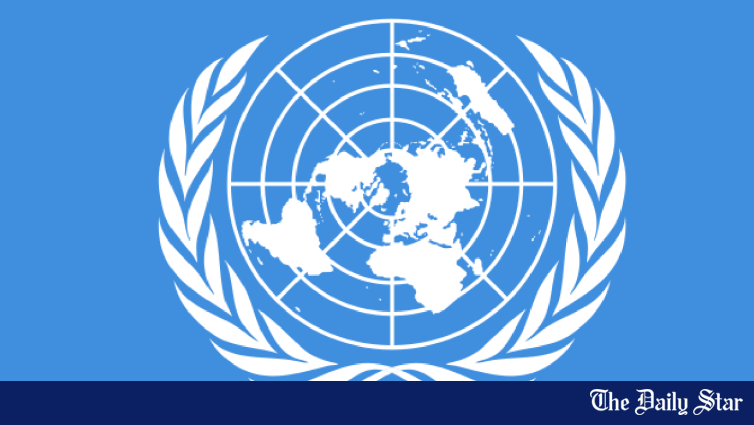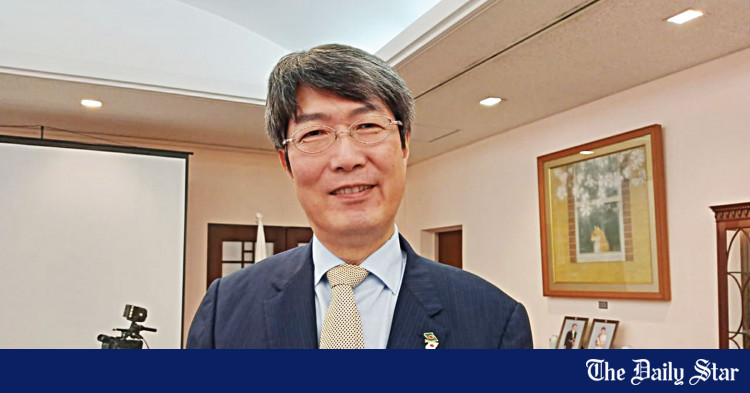Saif
Senior Member
- Messages
- 15,397
- Nation

- Axis Group


PRC suggests changing metropolitan police commissioner’s power in prohibiting rallies
The Police Reform Commission (PRC) has suggested restricting the authority of police commissioner to prohibit people’s right to hold assembly or procession as majority respondents in a survey have considered such right as vital for flourishing country’s democratic environment. “S
PRC suggests changing metropolitan police commissioner’s power in prohibiting rallies
BSS
Published :
Dec 08, 2024 23:46
Updated :
Dec 08, 2024 23:46

The Police Reform Commission (PRC) has suggested restricting the authority of police commissioner to prohibit people’s right to hold assembly or procession as majority respondents in a survey have considered such right as vital for flourishing country’s democratic environment.
“Some 71.2 per cent respondents want to change this provision of the police administration to sustain the rights of holding assembly or procession to flourish the country’s democratic environment,” according to a recent public survey conducted by the PRC.
In accordance with the section 29 of the Dhaka Metropolitan Police Ordinance, 1976, the Police Commissioner may, by order in writing, prohibit any assembly or procession whenever and for so long as he considers such prohibition to be necessary for the preservation of the public peace or safety: provided that no such prohibition shall remain in force for more than thirty days without the sanction of the Government.
Although there is no provision of taking prior permission for holding assembly or procession in the ordinance, prior police permission is required to this respect.
As many as 24,442 individuals took part in the survey and 17,411 want amendment to the provision while 7031 (28.8 percent) do not want any change to the provision.
Some 51.8 percent respondents have considered taking prior permission for holding rallies from the Metropolitan Police Commissioner as an adversary of the basic rights as Article 37 of the Constitution has guaranteed holding assembly and procession as basic rights.
However, 37.4 respondents have expressed their disagreement while 10.8 percent are doubtful or hesitant about the opinion.
The public survey titled ‘What kind of police do we want (kemon police chai)’ was carried out in the wake of recent criticism in Bangladesh and around the world about the violent role of some police personnel in suppressing the anti-discrimination student movement.
To that end, the interim government formed the 'Police Reform Commission' to reform the police force.
In replying to a question on how the allegations of human rights violation and misusing of power by police should be investigated, 60 percent of 24,442 the people taking part in the survey, recommended forming a complete investigation commission to pursue the matter.
While 20 percent of them have suggested formation of a permanent investigation commission led by a retired justice of the High Court division and 20 percent wanted to investigate into the allegation by the National Human Rights Commission by amending the relevant law of 2009.
The country needs a law-abiding, corruption and political influence free independent police to maintain law and order equally for the people irrespective of their identity, the survey said.
“Some 89.5 percent people opined to stop use police force for political purposes and 77.9 percent want police not to indulge in corruption by misusing power,” it also said.
Apart from these, 74.9 percent opined to bring police under accountability for violations of rights that include enforced disappearances and extrajudicial killings.
The survey is now available on the website of the Police Reform Commission (www.prc.mhapsd.gov.bd), said a press release of the home ministry.
The Police Reform Commission has received recommendations from 24,442 individuals of different sections following its request to submit their opinions by November 15, 2024.
BSS
Published :
Dec 08, 2024 23:46
Updated :
Dec 08, 2024 23:46
The Police Reform Commission (PRC) has suggested restricting the authority of police commissioner to prohibit people’s right to hold assembly or procession as majority respondents in a survey have considered such right as vital for flourishing country’s democratic environment.
“Some 71.2 per cent respondents want to change this provision of the police administration to sustain the rights of holding assembly or procession to flourish the country’s democratic environment,” according to a recent public survey conducted by the PRC.
In accordance with the section 29 of the Dhaka Metropolitan Police Ordinance, 1976, the Police Commissioner may, by order in writing, prohibit any assembly or procession whenever and for so long as he considers such prohibition to be necessary for the preservation of the public peace or safety: provided that no such prohibition shall remain in force for more than thirty days without the sanction of the Government.
Although there is no provision of taking prior permission for holding assembly or procession in the ordinance, prior police permission is required to this respect.
As many as 24,442 individuals took part in the survey and 17,411 want amendment to the provision while 7031 (28.8 percent) do not want any change to the provision.
Some 51.8 percent respondents have considered taking prior permission for holding rallies from the Metropolitan Police Commissioner as an adversary of the basic rights as Article 37 of the Constitution has guaranteed holding assembly and procession as basic rights.
However, 37.4 respondents have expressed their disagreement while 10.8 percent are doubtful or hesitant about the opinion.
The public survey titled ‘What kind of police do we want (kemon police chai)’ was carried out in the wake of recent criticism in Bangladesh and around the world about the violent role of some police personnel in suppressing the anti-discrimination student movement.
To that end, the interim government formed the 'Police Reform Commission' to reform the police force.
In replying to a question on how the allegations of human rights violation and misusing of power by police should be investigated, 60 percent of 24,442 the people taking part in the survey, recommended forming a complete investigation commission to pursue the matter.
While 20 percent of them have suggested formation of a permanent investigation commission led by a retired justice of the High Court division and 20 percent wanted to investigate into the allegation by the National Human Rights Commission by amending the relevant law of 2009.
The country needs a law-abiding, corruption and political influence free independent police to maintain law and order equally for the people irrespective of their identity, the survey said.
“Some 89.5 percent people opined to stop use police force for political purposes and 77.9 percent want police not to indulge in corruption by misusing power,” it also said.
Apart from these, 74.9 percent opined to bring police under accountability for violations of rights that include enforced disappearances and extrajudicial killings.
The survey is now available on the website of the Police Reform Commission (www.prc.mhapsd.gov.bd), said a press release of the home ministry.
The Police Reform Commission has received recommendations from 24,442 individuals of different sections following its request to submit their opinions by November 15, 2024.




